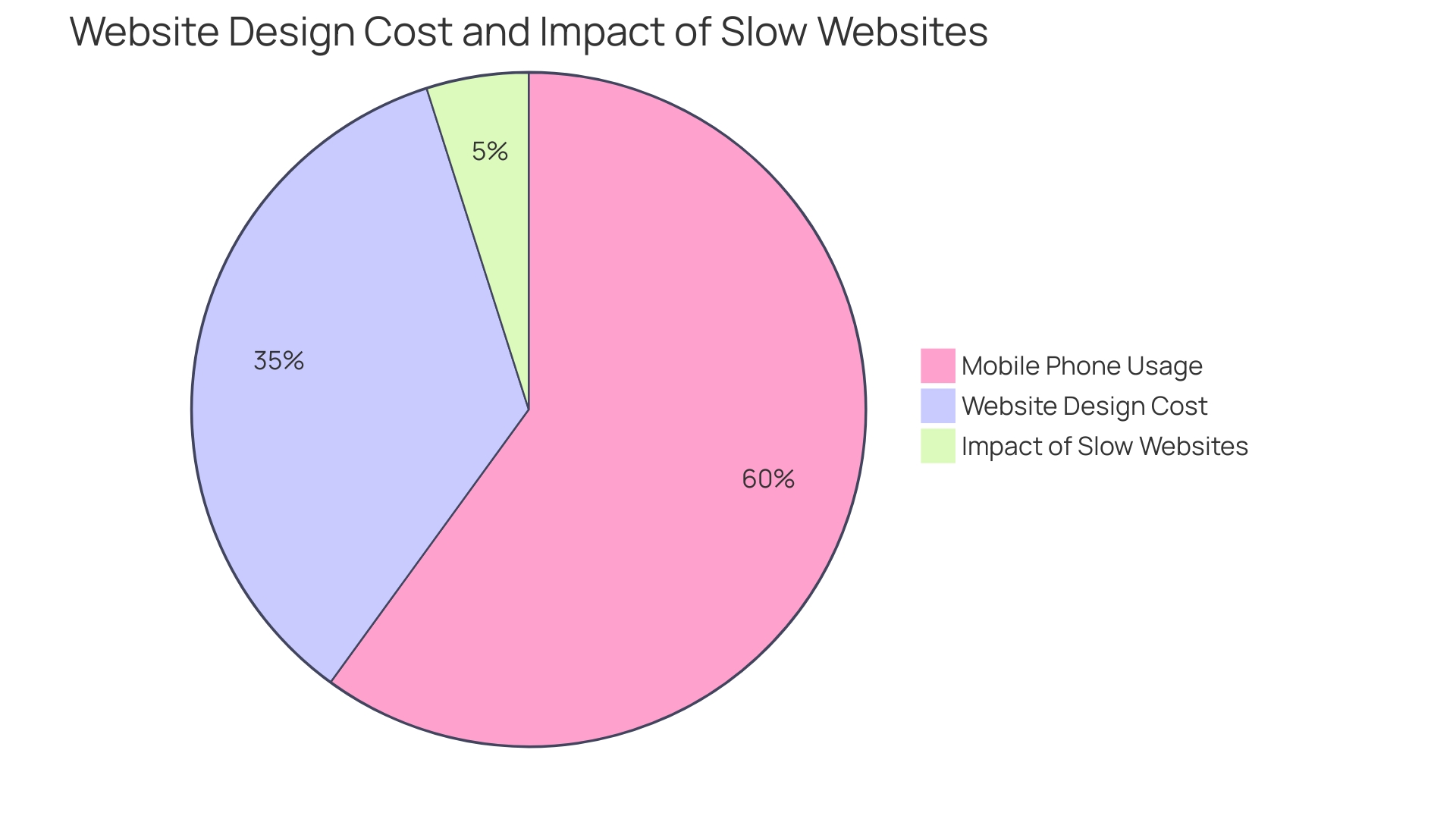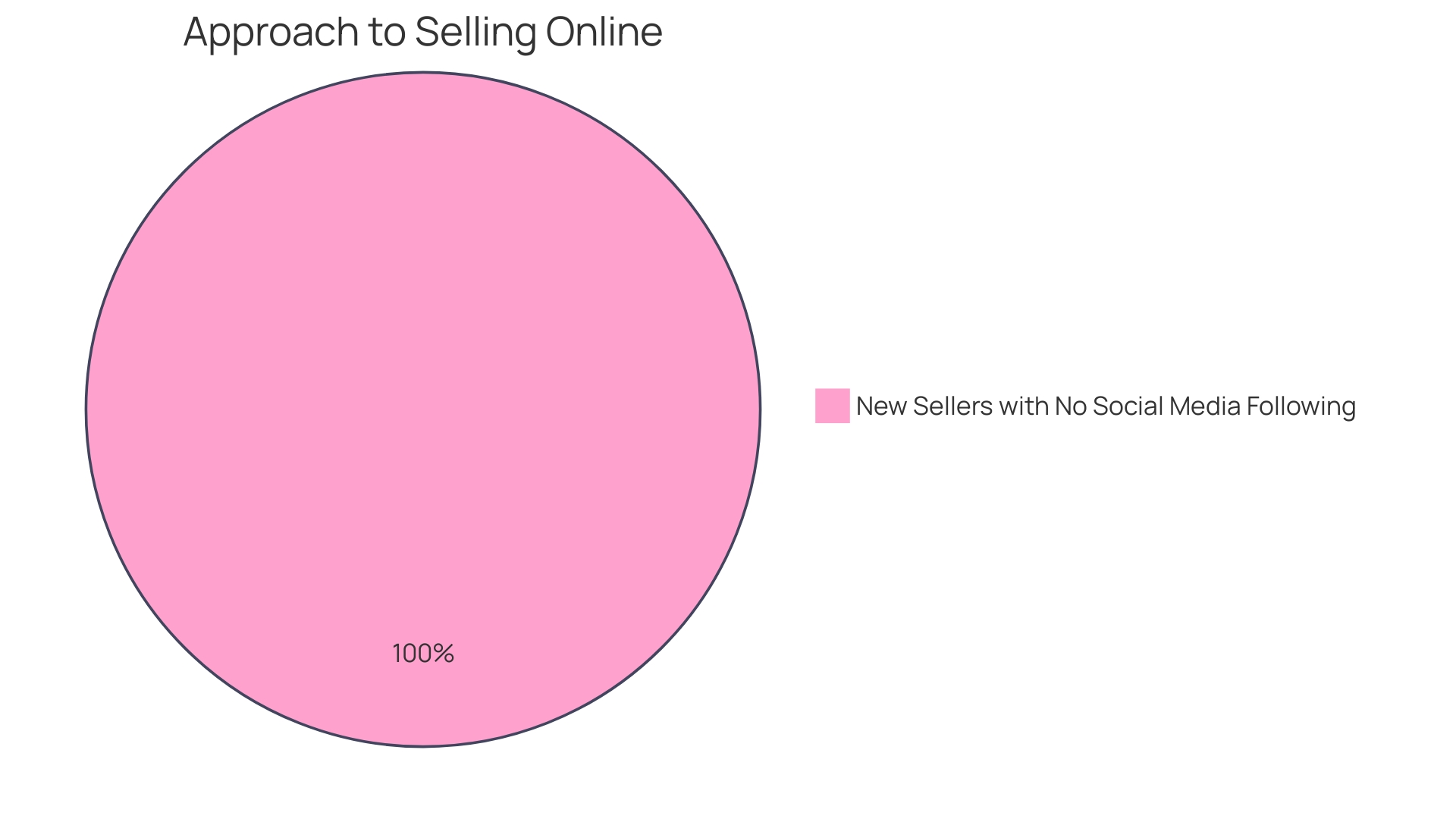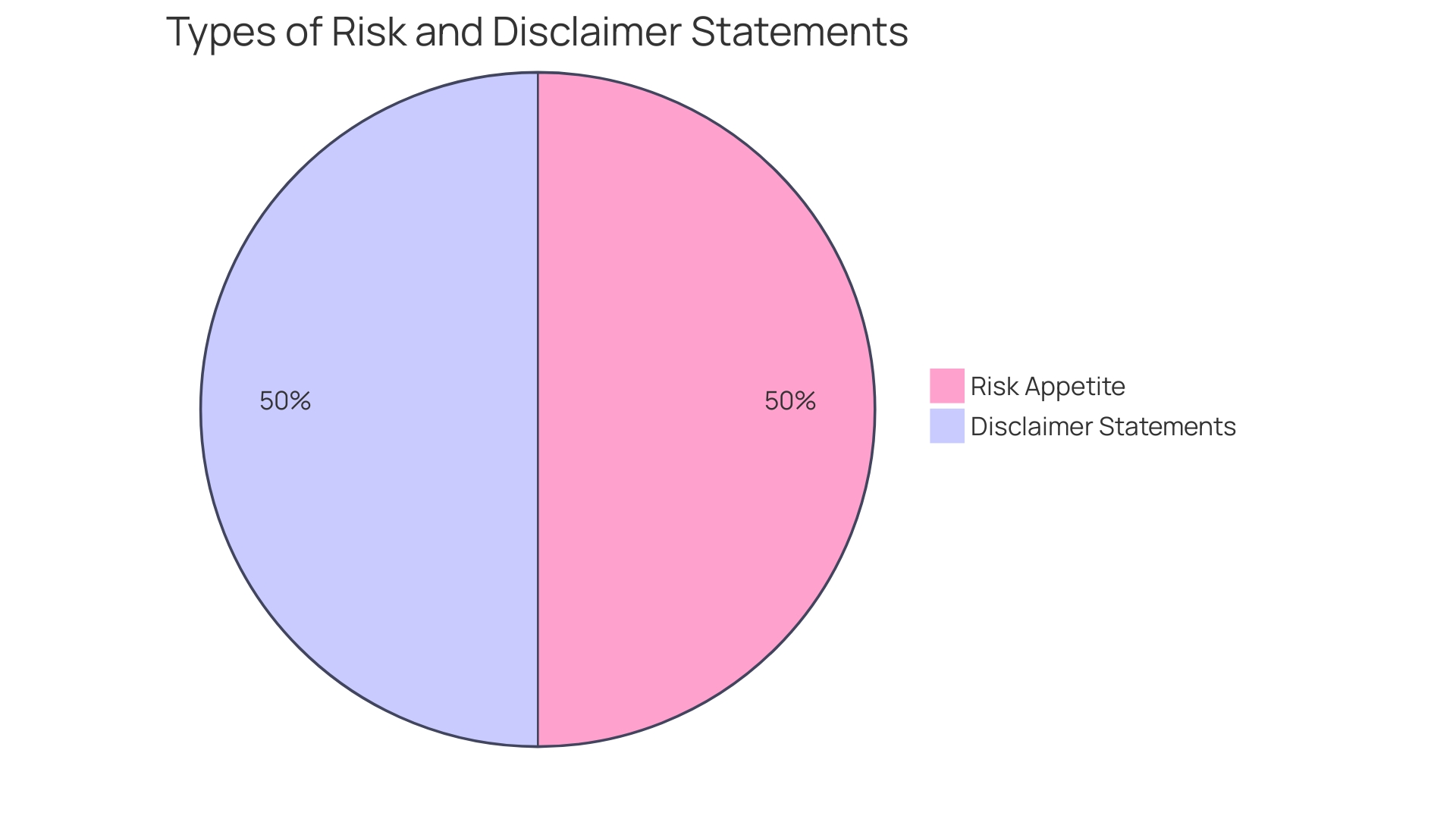Introduction
Understanding the market, optimizing the website, showcasing the business potential, developing a comprehensive sales plan, preparing accurate financial documentation, evaluating and addressing potential risks, maintaining and enhancing customer relationships, and seeking professional valuation services are all essential steps to successfully selling your business website. By following these strategies and approaches, you can position yourself for a more favorable outcome and maximize the value of your website. In this article, we will delve into each of these steps, providing valuable insights and practical tips to help you navigate the process of selling your website with confidence and success.
Understand the Market
Understanding the market is a linchpin in preparing to sell your business website. By diving into market trends, analyzing competition, and pinpointing what customers are looking for, you can more accurately gauge your website's value. This isn't just about setting a price; it's about understanding the ecosystem in which your business operates.
For instance, mobile internet usage has skyrocketed, with over 60% of web access coming from mobile devices, necessitating a mobile-responsive design for your site. Additionally, 43% of small businesses are investing in their website's performance, signaling how critical a robust online presence is in today's market.
Before you consider selling, take a page from successful businesses that have conducted deep dives into their niche markets. Utilize reports and data analysis to save time and gain comprehensive insights. Remember the story of Traffic Think Tank: they started as a small, invitation-only group sharing SEO strategies and grew into a business that caught the eye of a public tech company.
Their focus on providing a consistent and effective user experience was key to their growth.
Moreover, proper website valuation cannot be overlooked. It's a common pitfall, as underscored by experts. Stephanie Wells of Formidable Forms emphasizes the importance of projecting your company's trajectory over the next decade to understand its true value.
Similarly, neglecting an accurate valuation can result in underselling your business or setting an unrealistically high price that turns buyers away. Hiring a professional to assess your financial, assets, customer base, and industry trends can lead to a fair market valuation, providing a strong position for negotiation.
In essence, being informed and prepared can markedly influence the success of selling your website. By understanding the nuances of your market and ensuring a realistic valuation, you position yourself for a more favorable outcome. This approach is not just about the present; it's about strategically setting up your business for future opportunities, whether that means selling at a premium or continuing to grow and succeed in the ever-evolving digital landscape.

Optimize the Website
A website that's not only functional but also aesthetically pleasing and user-friendly can significantly enhance a business's online presence and value. For instance, a hotel company in the US saw remarkable results when they implemented a solid foundation of tools like Google Analytics and Conversion Tracking, followed by a well-researched PPC campaign. This approach led to substantial improvements in their online bookings.
Similarly, a restaurant's success story highlighted the importance of understanding the market and tailoring the experience to customer needs, which nearly doubled their size and profits. The meticulous planning that went into the restaurant's concept, layout, and marketing strategies, including a loyalty program, contributed to a significant increase in both bar and food sales.
In today's market, where 43% of small businesses are focusing on website performance upgrades, it's clear that an excellent online presence is a powerful tool for growth. With over a billion websites on the internet, making yours stand out with superb design and functionality is crucial. Not only does this attract potential buyers, but it also positions your website to command a higher selling price.
Remember, an optimized website is your digital storefront; it should effectively showcase your brand and facilitate customer engagement to drive your business forward.

Showcase the Business Potential
Make your business website an irresistible prospect by highlighting its robust revenue streams, untapped growth potential, and the unique value it offers. To captivate potential buyers, present a compelling narrative of the website's success through tangible data like traffic figures, conversion ratios, and user engagement levels. For instance, create a narrative around the website's seamless user experience, underpinned by a judicious selection of tech tools such as Django and Tailwind, and the strategic SEO efforts that have bolstered visibility by targeting high-traffic keywords relevant to your sector.
Illustrate the website's design evolution, which has been a collaborative journey of creativity and branding, synthesizing elements like 3D, UI, and motion design to not only reflect the essence of the brand but also to set a new benchmark in providing immersive user experiences. This approach, inspired by product marketing tactics typically seen in SaaS startups, has transformed the website into a cornerstone of the brand strategy.
Incorporate the latest industry insights, such as the prediction that mobile devices will account for over 60% of global web usage, emphasizing the website's responsive design that aligns with such trends. Support this narrative with authoritative data, like the statistic that 43% of small businesses are earmarking investments for website performance enhancements in the current year, showcasing the site's alignment with market trends and investment-worthy status.
Finally, underscore the exclusivity and relevance of your website in the market by referencing the latest developments and acquisitions in the region, adding a layer of timeliness and significance to your proposition. With strategic storytelling supported by data and market trends, your website's potential will shine through, making it not just a transactional asset but a visionary investment.

Develop a Comprehensive Sales Plan
Selling your website requires more than just putting up a 'For Sale' sign online; it demands a strategic approach to reach the right audience and secure the best possible deal. Start by crafting compelling sales pitches that capture attention and highlight the unique value of your website. Embrace cold email outreach as a personalized and scalable method to forge connections with potential buyers.
Now, consider the power of networking within established communities such as the Rhodium Network. Here, you'll find like-minded digital entrepreneurs, including owners of high-valued online businesses, ready to learn, share, and possibly strike deals. Take advantage of such platforms to showcase your website to high-6 to 9-figure potential buyers who gather both online and at exclusive events.
Keep abreast of industry trends, such as those exemplified by major companies like Apple, which succeeds through innovation and a commitment to sustainability. Drawing inspiration from these giants, ensure your website's value proposition aligns with what's valued in your industry—be it proprietary assets, intellectual property, or profitability metrics.
Utilize multi-channel marketing efforts, including social media, online marketplaces, and industry-specific platforms, to increase visibility. Sales data analysis is crucial; by setting clear goals and identifying relevant sales metrics, you can tailor your selling strategy to meet the market demand effectively. This focused approach ensures you're not sifting through data without direction but are strategically positioning your website for a successful sale.
To further enhance your reach, consider partnering with a professional business broker who understands your niche and can connect you with serious buyers. Their expertise can save you time and energy, ensuring you receive a fair assessment of your website's true value. As emphasized by industry experts, understanding the potential of your business over the next decade is key to evaluating whether an offer truly reflects its worth.

Prepare Accurate Financial Documentation
When it's time to sell your e-commerce or small business website, having your financials in order is more than just best practice—it's a pivotal part of the sales process. To present your business as a valuable asset to potential buyers, you should prepare a thorough set of financial documents. This includes detailed income statements, balance sheets, and cash flow statements.
Each document should accurately reflect the website's revenue streams, expenses, and overall profitability.
Buyers are looking for clear, transparent, and up-to-date financial information. This not only builds trust, but also helps them perform a proper valuation. As highlighted in industry reports, neglecting an accurate valuation is a critical mistake.
Bringing in a professional to assess your business's fair market value could be a wise investment. They'll delve into your financial statements, assets, and even customer base to help you understand what your business is truly worth.
Moreover, understanding the type of sale—whether it's a stock sale or an asset sale—is essential, as it influences your capital gains and the tax implications thereof. This might seem daunting, but getting it right can make a significant difference in the end. Remember, you're not just selling a website; you're selling a business with a tangible value that can be clearly demonstrated through a well-prepared Quality of Earnings (QOE) report.
This report will offer a comprehensive view of your enterprise value, factoring in EBITDA, Free Cash Flow, revenue, and industry-specific metrics, adjusted for one-time events and non-operational expenses.
By ensuring all these elements are in place, you're setting the stage for a successful and profitable sale, while making the process smoother and more appealing for prospective buyers.
Evaluate and Address Potential Risks
To safeguard the value of your business website and fortify the confidence of prospective buyers, it's crucial to meticulously evaluate and address potential risks. Evaluate your website for any vulnerabilities that might exist, such as over-reliance on a select few suppliers, a narrow customer base, or exposure to legal and compliance hazards. Proactively diversify your supply chain to reduce dependency, broaden your customer demographics, and rigorously adhere to all applicable laws and regulations.
By doing so, you not only diminish risks but also bolster the website's value proposition.
Enhancing your website's robustness includes ensuring it's adaptable and responsive, catering to the increasing predominance of mobile web usage, which is expected to surpass 60% globally. A responsive design ensures that your content is accessible across various devices, including smartphones and tablets, thereby improving user experience and potentially boosting conversions.
Moreover, a well-executed search engine optimization (SEO) strategy can significantly augment your online visibility. By analyzing competitor traffic and identifying high-performing pages and keywords, you can craft a content roadmap that aligns with your business objectives and search intent. Continual optimization of articles, titles, and calls-to-action (CTAs) based on performance can lead to improved rankings and, consequently, increased qualified leads.
For instance, businesses like Cisler Sweets have leveraged their brand's nostalgic appeal and tradition to drive customer engagement and loyalty. Such emotional connections can be a powerful tool in reducing perceived risks by potential buyers.
Additionally, a clear and straightforward disclaimer can delineate the scope of your website's liability, helping to prevent legal disputes. As advised by industry experts, your disclaimer should be direct, specify limitations, and be comprehensive yet concise, ensuring that customers fully understand the terms of service and product usage.
Remember, a website that's consistently updated, with fresh, magnetic content, serves as the strong foundation necessary for generating leads and sales autonomously. A neglected or outdated website is akin to a retail store with dusty displays and stale merchandise - customers will turn away. Thus, regular updates and an appealing design are key to retaining and attracting a wider customer base, ultimately making your website a more attractive asset for sale.

Maintain and Enhance Customer Relationships
To make your business website an irresistible proposition for potential buyers, focus on cultivating a robust customer base. This isn't just about numbers; it's about the loyalty and satisfaction that your customers feel. By offering an outstanding customer service experience, you create a journey that begins with the first contact and extends well beyond the purchase, ensuring that every interaction—be it online, over the phone, or in person—reinforces trust and value.
Take a cue from successful online ventures that have harnessed the power of personalized marketing. Tailor your engagement strategies to meet the unique needs and preferences of your clientele. You can, for example, utilize a technical stack that enhances the user experience, like Django, Tailwind, or HTMX, fine-tuned to provide a seamless and enjoyable online journey.
Moreover, a strategic SEO approach can elevate your website's visibility, drawing in more traffic and, eventually, more interested buyers. This means diving deep into competitor analysis, identifying the most traffic-generating pages and keywords, and creating compelling content that addresses those search intentions. As your content begins to rank, refine your approach by optimizing CTAs and testing different titles to improve conversion rates.
Remember, a customer-centric website doesn't just happen. It's built on a foundation of strategic planning, from setting up effective tools like Google Analytics and Conversion Tracking, to implementing programs that encourage customer loyalty. When buyers see a thriving, dynamic website with a dedicated following, they see potential for growth and a venture worth investing in.
Seek Professional Valuation Services
Enlisting the services of a professional valuation can be a game-changer when determining the true worth of your business website. Drawing from a depth of expertise, valuators meticulously evaluate financial records, study the pulse of current market conditions, delve into industry trends, and weigh the website's potential for future growth. This multifaceted approach, akin to the nuanced property valuations in Perth or the methodical appraisal of artwork for auction, ensures an accurate and market-reflective valuation.
It's more than just assigning a number; it's about understanding the intricate web of factors that contribute to your site's value, much like how property values underpin tax calculations. As seen in recent high-profile IPOs, such as Arm Holdings, where a comprehensive valuation underpinned a $52 billion price tag, a professional assessment can considerably sway the outcome of a sale. In the digital marketplace, this translates to setting a well-grounded asking price and entering negotiations with confidence, bolstered by a valuation that stands on solid ground.
Conclusion
To successfully sell your business website, it's crucial to understand the market, optimize your website, showcase its potential, develop a comprehensive sales plan, prepare accurate financial documentation, evaluate and address potential risks, maintain customer relationships, and seek professional valuation services.
Understanding the market involves analyzing trends, competition, and customer preferences. Obtaining a professional valuation helps set a realistic price and avoid underselling.
Optimizing your website enhances its online presence and attracts buyers. Implement tools like Google Analytics, Conversion Tracking, and PPC campaigns to improve performance.
Showcasing your website's potential means highlighting revenue streams, growth opportunities, and unique value. Use data and industry insights to captivate buyers.
Developing a comprehensive sales plan involves crafting compelling pitches, utilizing networking platforms, and leveraging multi-channel marketing.
Preparing accurate financial documentation builds trust and helps buyers perform proper valuations. Understand tax implications and the type of sale.
Evaluate and address potential risks to fortify buyer confidence. Diversify your supply chain, broaden your customer base, and adhere to regulations. Enhance your website's robustness and implement SEO strategies.
Maintain and enhance customer relationships by offering outstanding service, personalizing marketing, and optimizing the user experience.
Seek professional valuation services to accurately determine your website's worth.
By following these strategies, you can navigate the process of selling your website with confidence and attract serious buyers who recognize its potential for growth and profitability.




